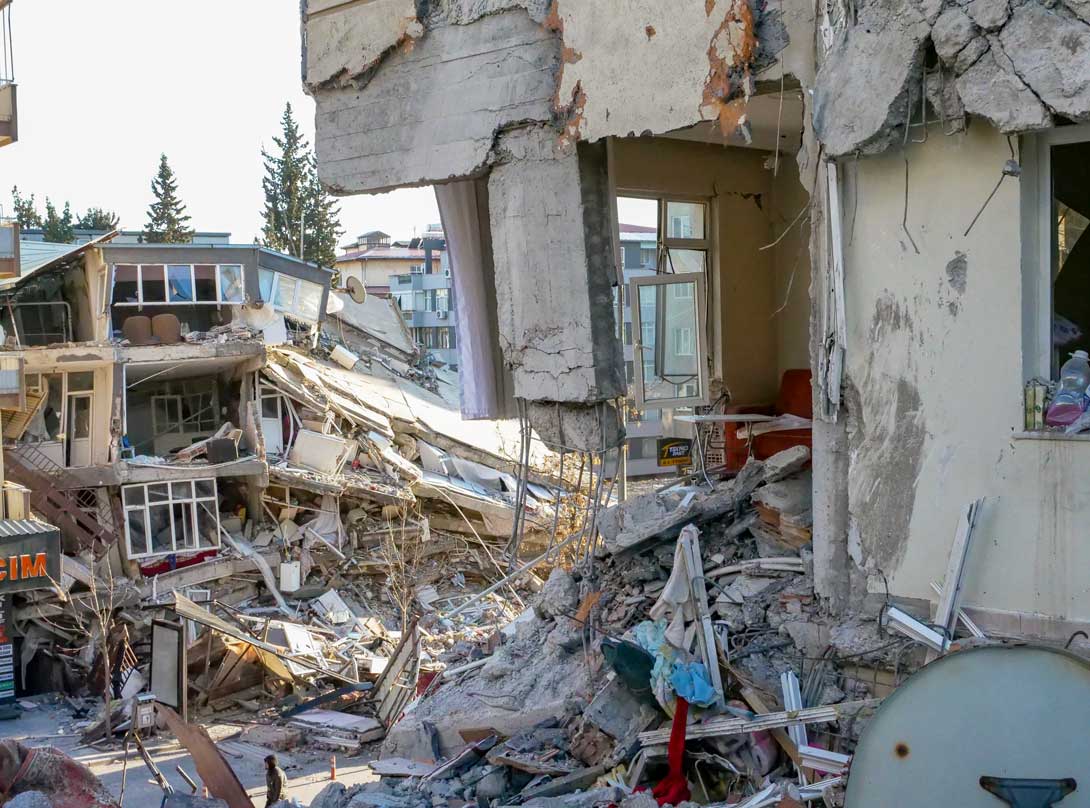Investigating earthquake damage
Text block one Heading link

The devastating earthquakes that hit Turkey and Syria in February 2023 killed nearly 60,000 people, left millions homeless across more than a dozen cities, and caused billions of dollars in damage.
In an effort to understand why the earthquake caused a significant amount of destruction in Southern Turkey, Research Associate Professor Mustafa Mahamid, of civil, materials, and environmental engineering, visited the region to investigate damaged and collapsed buildings with a group of professors from the Middle East Technical University.
“We focused our efforts on the city of Malatya where many buildings remained standing, but there was also a large number of buildings that collapsed,” Mahamid said. “The purpose was mainly to look at different types of buildings, collapses, damaged buildings, buildings with partial collapses, and to understand how the structures performed.”
The team found some destruction was due to building issues that are the result of a greater system-wide problem with the building codes, construction, inspections, and the heavy use of building multi-story structures with reinforced concrete that were not designed or constructed properly and per the current standards.
Many of the old buildings designed before the building codes were updated to consider earthquake loads properly were destroyed or partially destroyed. The buildings that withstood the earthquake still sustained enough damage to cause them to be designated as not inhabitable.
Mahamid’s trip was several days, and he expressed an interest in returning to the region to evaluate more buildings and bridges, and work with his peers and the government to help the people in the region.
“Many people fled these cities, and they are staying in refugee camps or with relatives in different cities. They lost everything, and they are anxious to know what happened to their homes,” Mahamid said.